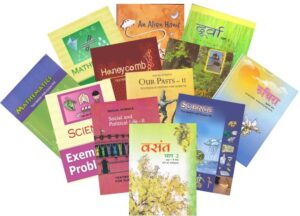Debate Intensifies Over Saffronization of NCERT Textbooks in India

New Delhi, May 31, 2025 — The National Council of Educational Research and Training (NCERT), tasked with shaping the curricula for millions of Indian students, finds itself at the center of a heated controversy over allegations of “saffronization” in its textbooks. The term, linked to the promotion of Hindu nationalist ideologies often associated with the ruling Bharatiya Janata Party (BJP) and its affiliates, has sparked debates about the role of education in India’s diverse society.
A Pattern of Revision
Recent revisions to NCERT textbooks, particularly in history and social sciences, have drawn scrutiny for allegedly aligning with a Hindutva narrative. Critics point to several changes: chapters on the Mughal Empire have been significantly shortened, with reduced emphasis on their cultural contributions, while figures like Maharana Pratap and Shivaji are highlighted as defenders of Hindu identity. References to sensitive topics, such as the 2002 Gujarat riots or caste-based discrimination, have been softened or omitted in some cases, raising concerns about historical accuracy.
Additionally, textbooks have increasingly emphasized ancient Indian achievements, particularly those tied to Vedic or Hindu traditions. Sanskrit texts and concepts like Vedic mathematics have gained prominence, which supporters argue restores cultural pride but critics see as marginalizing India’s pluralistic heritage.
Dr. Anjali Sharma, a historian at Jawaharlal Nehru University, voiced concerns: “These revisions often lack rigorous evidence and risk presenting a one-sided narrative. Education should foster critical thinking, not ideological conformity.”
Historical Echoes
The saffronization debate is not new. It first gained traction during the BJP-led National Democratic Alliance (NDA) government from 1998 to 2004, when critics accused the government of revising textbooks to reflect Hindu nationalist priorities. The issue resurfaced after the BJP’s return to power in 2014, with subsequent changes under the NDA intensifying scrutiny.
A senior NCERT official, speaking anonymously, defended the revisions: “Our goal is to correct colonial biases in earlier curricula and highlight India’s indigenous contributions. This is about fostering national pride, not division.”
Voices of Concern
Opposition leaders and academics have condemned the changes as an attempt to rewrite history. Congress leader Priya Ranjan accused the government of “erasing India’s pluralistic identity” and called for an independent review of NCERT’s revision process. “Textbooks are for learning, not propaganda,” she said at a press conference in New Delhi.
Educators also worry about the impact on students. “By downplaying certain histories or communities, we risk alienating students and stifling their ability to question narratives,” said Rakesh Kumar, a schoolteacher in Mumbai. Critics argue that such changes could deepen social divisions in a country known for its diversity.
Defending the Changes
Government supporters, including members of the Rashtriya Swayamsevak Sangh (RSS), argue that the revisions address long-standing imbalances. “For too long, our education system glorified foreign rulers while ignoring India’s own heroes,” said Anil Gupta, a BJP spokesperson. “These changes celebrate our heritage and inspire young Indians.”
Proponents also frame the inclusion of Sanskrit and Vedic knowledge as a step toward cultural relevance. “Why shouldn’t students learn about their roots?” asked Meena Desai, a parent in Ahmedabad. “This isn’t about exclusion; it’s about reclaiming our identity.”
Broader Implications
The controversy raises questions about the balance between state control and academic freedom. NCERT textbooks are used by CBSE schools and several state boards, influencing millions of students. A curriculum perceived as biased could shape how future generations view India’s history and identity.
“This is about more than textbooks,” said Dr. Sharma. “It’s about the kind of society we want to build—one that embraces diversity or one that prioritizes a single narrative.”
The Education Ministry has maintained that revisions are part of routine updates to align with new research and national priorities. However, calls for transparency in the revision process are growing, with academics urging the involvement of independent historians and educators.
A Nation Divided?
As India navigates its role as a global power, the saffronization debate underscores deeper tensions between secularism and nationalism. While supporters see the changes as a necessary correction, critics warn of long-term consequences for social cohesion and intellectual freedom.
For now, the NCERT remains under pressure to balance cultural pride with historical accuracy. As students across India open their textbooks, the question looms: will these pages unite the nation or deepen its divides?
